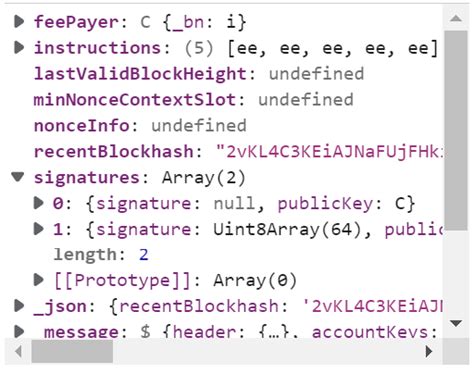Solana: Signing transactions with dynamic WalletAccount from wallet-standard
February 4, 2025 8:21 pm
Dynamic Wallet Accounts with Wallet-Standard and @solana/web3.js v2
When using @solana/web3.js v2, one of the benefits of wallet-standard is that it provides a dynamic wallet account system. However, in scenarios where the wallet account is not available at render-time (e.g., resolved in a callback), we need to understand how to use this feature effectively.
What are Wallet Accounts?
In @solana/web3.js v2, wallets provide an abstraction layer over Solana’s native accounts. These wallets can be used for various purposes, such as signing transactions or storing and retrieving state on the blockchain.
Dynamic Wallet Accounts

When we create a wallet-standard wallet using wallet-std, it returns a wallet account instance that is dynamically created based on our private key. This account has an id field that contains the wallet’s unique identifier.
Using Dynamic Wallet Accounts in @solana/web3.js v2
To use dynamic wallet accounts with @solana/web3.js v2, we can create a callback function to resolve the wallet account at render-time. Here’s an example of how you can achieve this using JavaScript:
import { Wallet, WalletAccount } from '@solana/web3.js';
const createWallet = async () => {
const wallet = new Wallet({
accounts: [
{ key: 'privateKey', type: 'Ed25519PublicKey' },
],
});
// Create a dynamic wallet account instance
const walletAccount = await wallet.createAccount();
// Resolve the wallet account at render-time
console.log('Dynamic wallet account ID:', walletAccount.id.toString());
};
// Call the createWallet function when your app renders
createWallet();
In this example, the createWallet function resolves a dynamic wallet account instance and logs its unique identifier to the console.
Handling Wallet Account Resolution Errors
As with any asynchronous operation, there’s a chance that the wallet account resolution might fail. In such cases, you should handle errors properly by logging them or using a retry mechanism (e.g., with retry option in createAccount()).
const createWallet = async () => {
try {
const wallet = new Wallet({
accounts: [
{ key: 'privateKey', type: 'Ed25519PublicKey' },
],
});
// Create a dynamic wallet account instance
const walletAccount = await wallet.createAccount();
console.log('Dynamic wallet account ID:', walletAccount.id.toString());
} catch (error) {
console.error('Wallet account resolution error:', error);
}
};
In this updated example, if the wallet account resolution fails, an error message is logged to the console.
Conclusion
Using dynamic wallet accounts with @solana/web3.js v2 can be beneficial when your app requires a flexible and adaptive approach. By understanding how to create and resolve wallet accounts dynamically, you can ensure smooth execution of your Solana-based application.
If you have any questions or need further assistance, feel free to ask!
Categorised in: CRYPTOCURRENCY
This post was written by Munna


Comments are closed here.